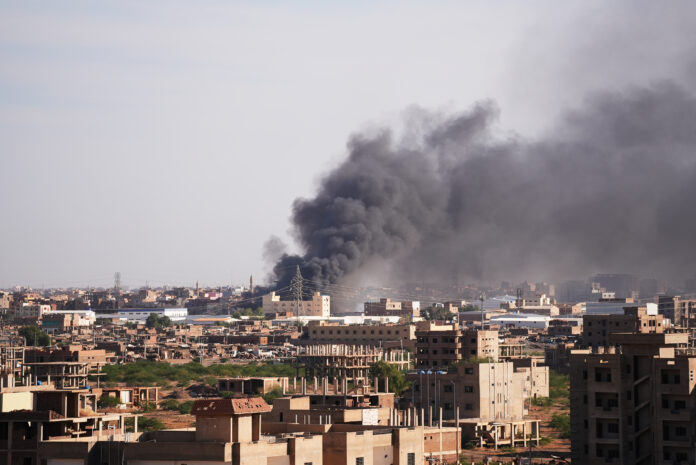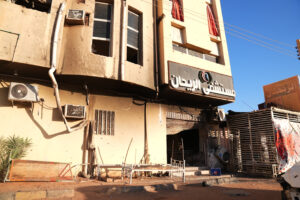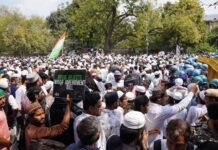
Sudan’s Armed Forces (SAF) have regained control of the cities of Wad Madani and Tambul, marking a pivotal moment in the ongoing civil war.
“We are inside Wad Madani city, and the Rapid Support Forces (RSF) fled it,” said Major Bassam Abu Satour, a field commander, on Saturday.
Nearly a year after the RSF, which is backed by the UAE, captured the city, the victory is being celebrated as a significant achievement for the SAF. Information Minister Khalid Alesir praised the military, expressing gratitude to the “steadfast and victorious people” of Al Jazirah state.
Within 48 hours of retaking Wad Madani, the SAF secured Tambul, consolidating its presence in eastern Al Jazirah. Despite these gains, the RSF continues to control large areas of the state, stretching south to Sennar and west to White Nile.
The SAF’s recent successes follow months of intense clashes that reignited in October 2024 when RSF commander Abu Aqla Kikal defected to the SAF.
A humanitarian crisis worsens
Since the conflict began in April 2023, Sudan has faced one of the world’s most devastating humanitarian crises. The United Nations estimates over 20,000 deaths and the displacement of 14 million people.
Subscribe to our newsletter and stay updated on the latest news and updates from around the Muslim world!
However, research from U.S.-based institutions suggests the true death toll could be much higher, exceeding 130,000.
The destruction of essential infrastructure has worsened conditions. Approximately 70% of Sudan’s healthcare facilities are now inoperative, leaving millions without access to medical care. Food insecurity has reached catastrophic levels, with more than half the population facing the threat of famine.

North Darfur, one of the regions hardest hit by the conflict, continues to witness violent clashes.
On Saturday, the RSF reportedly shelled the Zamzam camp for displaced persons in El Fasher, killing 16 and injuring 42. Activists have accused the RSF of deliberately targeting civilian shelters, describing such attacks as violations of international humanitarian law.
The International Organization for Migration (IOM) has reported mass displacement in North Kordofan, with between 1,000 and 3,000 families fleeing ongoing violence in the area.
Humanitarian agencies have repeatedly called for safe corridors to deliver aid to those affected by the conflict, but access remains severely restricted due to active fighting.
Foreign actors and their influence
External support has played a notable role in shaping the dynamics of Sudan’s conflict. Reports suggest that the RSF’s control over Sudan’s gold mines has contributed significantly to its funding, with the gold reportedly finding its way to international markets, including Dubai.
This economic activity has enabled the RSF to sustain its military campaigns and maintain control over strategic territories.

The United Arab Emirates (UAE) has faced allegations of involvement, including the provision of arms to the RSF, though these claims remain unverified.
Similarly, Russia’s Wagner Group has been linked to logistical and military assistance to the RSF in exchange for mining concessions. Observers note that such external involvement has added complexity to efforts aimed at resolving the conflict and achieving peace.
Sudanese leader Abdel Fattah al-Burhan has highlighted the broader implications of foreign involvement in African conflicts. During a recent meeting with Guinea-Bissau’s President Umaro Sissoco Embalo, he said: “There are colonial powers working to fuel conflicts on the African continent.”
Al-Burhan advocated for African-led solutions, emphasising the importance of resisting external interference in domestic affairs.
Key events in the conflict
- April 2023: The RSF launched coordinated attacks on SAF bases, sparking the conflict.
- December 2023: The RSF captured several towns in Al Jazirah, including Wad Madani.
- October 2024: RSF commander Abu Aqla Kikal defected to the SAF, reigniting clashes in Al Jazirah.
- January 2025: The SAF reclaimed Wad Madani and Tambul, marking significant victories.
Challenges ahead for Sudan
The SAF’s recent gains provide a glimmer of hope, but the broader challenges facing Sudan remain immense.
Both the SAF and RSF continue to hold significant territories, with neither side showing a willingness to compromise. Mediation efforts by the African Union, Saudi Arabia, and the United States have so far failed to produce a lasting ceasefire.
Meanwhile, civilians bear the brunt of the ongoing conflict. Displacement, food shortages, and lack of access to healthcare define daily life for millions. Analysts warn that without decisive international action, Sudan risks descending further into instability, with long-term consequences for the region.
The involvement of external actors, such as the UAE and Russia, continues to hinder peace efforts. Calls for accountability and stronger international pressure have grown louder, with many urging foreign powers to prioritise humanitarian needs over economic interests.






















